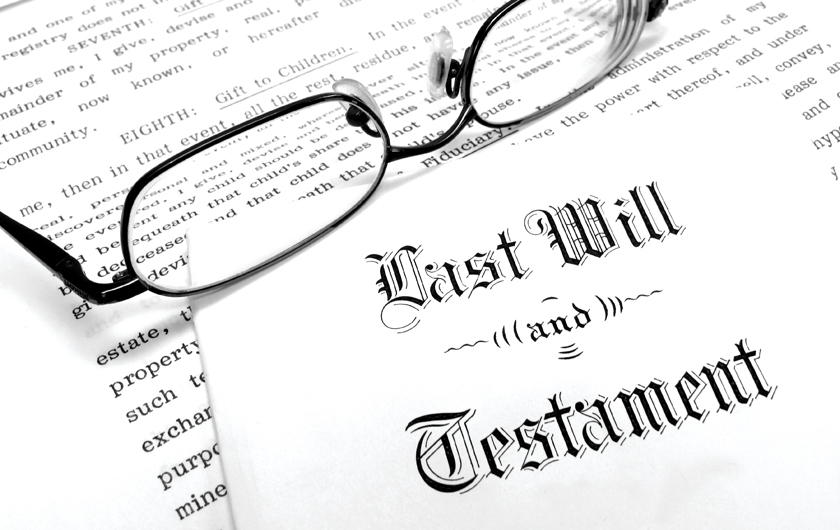If you’re not prepared when the time comes, you may have trouble coping with all that needs to be done
By Okey Chigbo
Photo: iStock/simpson.
When a husband or wife passes away, the loss can be one of the most emotionally devastating experiences in the life of the surviving spouse. The death of a loved one who has been a life partner can leave a person prostrate with grief, unable to think straight or do anything. Unfortunately, there is a lot that has to be done, and done right.
Susan James* believes preparations for the death of a spouse should begin well before there’s any sign that such a thing will happen. The 62-year-old teacher from Guelph, ON, lost her husband to cancer in 2015. “It happened very, very quickly,” she says. “We found out in February, and he was gone in April. I was unprepared for his quick passing because I believed 100 per cent that he was going to survive. It was very difficult.”
(*Name changed for reasons of privacy.)
James says it’s important for both spouses to make wills and to make sure those wills are up-to-date and include the name of an executor. “Visit your will regularly. Set aside some time every couple of years and make sure it’s worded the way you want. Make sure the wording is clear, that you say exactly what you want to say. If you don’t, you leave things up to other people’s interpretation,” she says.
Accountant Earle Pierre agrees that wills are vital. “When there’s no will, people spend a lot of money,” he says. “It cost one of my clients $180,000 to hire lawyers to settle disputes over inheritance.”
Pierre says it’s preferable to have a will prepared by a lawyer, because such wills are better regarded. It’s not that it can’t be contested, but a will prepared by a lawyer stands on more solid ground, he says.
If one partner is incapacitated by a mentally debilitating disease, it’s also important to have a power of attorney prepared beforehand and given to a trusted person. Yvette Trancoso, a Toronto journalist, had to handle things when her mother died in 2009 and her father was unable to take care of what needed to be done.
“There’s power of attorney for property and one for personal care,” Trancoso says. “Without power of attorney, the government will not release any information to you or talk to you. People in official positions are always concerned about fraud and you have to prove that you are authorized to act on this person’s behalf. Even if you’re a spouse, they may not release the information if you don’t have a power of attorney. I learned the hard way. I went to close my mother’s bank account, and the bank wouldn’t give me anything because they weren’t sure who I was. It will be very difficult to close an account or sell a house.”
Pierre says it’s also important to have the right person selected as trustee. It can’t just be a friend—it has to be a friend who knows and understands the duties of a trustee. He says that in one of the horror cases he handled, a friend of the deceased wife had been selected as trustee, and the friend felt this gave her the right to order the husband out of the house. “She came into the home screaming at him to get out!”
While the surviving spouse has to give directions, it’s also useful to have a professional or a team of professionals giving advice, and in some cases, actually doing the legwork. A lawyer, an accountant, and a financial advisor can help.
The foregoing are some of the things that should be done before a spouse passes on. Afterwards, a death certificate will have to be ordered. A certificate can be obtained from your provincial government, and you’ll need several copies—for such things as life insurance claims, accessing the bank account of the deceased spouse, and survivor benefits. “You almost can’t get anything done without a death certificate,” Trancoso says.
Pierre says that a funeral home can handle the death certificate, so you may not have to go through your provincial government. Finding a funeral home is therefore important for more than one reason.
The Employment and Social De-velopment Canada website (canada.ca) offers a checklist of the tasks that need to be done, many by the estate’s executor (search for “after a death”), such as closing all accounts that don’t need to be open, from bank accounts to RRIFs, investment accounts, and credit cards. In addition, the surviving spouse should transfer utility accounts to his or her name.
All pensions and benefits programs from the government or an employer should also be cancelled, and where possible, benefits transferred to the surviving spouse. Also cancel health insurance, passport, and citizenship. The surviving spouse or executor should also contact the Canada Revenue Agency so that taxes owed by the deceased can be paid.
Trancoso says that the lawyer who handled her mother’s death put an ad in the paper “stating that she had passed away, so that people who have outstanding claims can come forward. He publicized it for a limited time, about two months; if creditors don’t show up, they can’t put a lien on the house after that.”
She adds that the lawyer put the jointly owned house in her father’s name. This prevents people who may have been owed money by her mother from coming to take the home. Pierre sounds a note of caution about choosing lawyers: “They can give false advice that drags things out because they want to make money.”
It’s also important to watch for fraudsters who may want to take advantage of a surviving spouse’s vulnerable state. Before signing any financial agreement, it must be thoroughly checked out by an expert, and the survivor should take the necessary time to think about it. Also consider a pre-nuptial agreement for any marriage proposals, especially if assets are significant.
According to an article in Psychology Today, “Loneliness also represents perhaps the greatest challenge for seniors dealing with the loss of a spouse, making it particularly hard to move on with their lives afterward. This can also become a major health risk for seniors.”
The article reports an increased risk for depression and behaviour such as smoking and alcohol abuse. Seniors may fail to take care of themselves and become more inactive and isolated. A reduced life expectancy can result. Social support alone may not be enough, and seniors may need therapy.
Susan James says that she’s still grieving the loss of her husband, but she hasn’t sought any professional help.
“My grief is at a different level now,” she says. “Initially there was shock, which protected me. I was grateful for the shock because it allowed me to sleep at night and allowed me to do what I had to do. I didn’t know it was shock at the time. I thought it was my strength. I realized it was shock only after it passed.”






